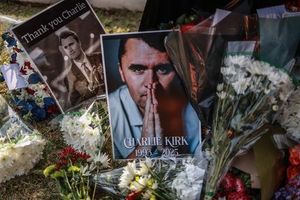Chandra Arya, the Ontario MP who made headlines by being the first to announce his candidacy for leadership of the Liberal Party of Canada, has found himself sidelined as the party confirmed he will not be permitted to run. Arya's exclusion raises questions about the legitimacy of the impending leadership race, especially as the party grapples with the aftermath of Prime Minister Justin Trudeau's decision to step down.
On January 26, 2025, Arya took to social media to express his disappointment, stating, "This decision raises significant questions about the legitimacy of the leadership race and, by extension, the legitimacy of the next prime minister of Canada." This sentiment reflects his unease with the processes at play within the party, particularly as he awaits official communication explaining the rationale behind his disqualification.
Despite being one of seven candidates who submitted paperwork alongside the mandatory refundable deposit for the race, Arya's bid was cut short, leading him to reflect on his next steps. While he remains committed to his supporters, who rallied tirelessly for his campaign, the unceremonious setback has sparked debates among political analysts about the internal mechanics of the party and its leadership selection process.
The party is currently positioning for contestation, with notable figures like former finance minister Chrystia Freeland and former Bank of Canada governor Mark Carney seen as front-runners. Arya’s disqualification seems particularly surprising considering he had initially painted himself as a viable candidate with progressive ideas aimed at addressing Canada’s structural challenges.
Industry Minister François-Philippe Champagne, demonstrating the Liberal Party’s shifting strategic support, recently endorsed Carney during their campaign appearance. "We have the same economic vision," he told reporters, emphasizing the need for the party to connect with the realities faced by everyday Canadians.
This endorsement signals significant momentum for Carney, who continues to garner support from high-profile Liberal insiders, including Foreign Affairs Minister Mélanie Joly and Environment Minister Steven Guilbeault. Their companionship signifies not only endorsements but also the increasing consensus on the leadership direction of the party at this pivotal time.
The importance of language and regional representation cannot be overlooked either, as Quebec's 78 seats loom large over the federal elections. None of the current candidates are francophones, which has raised eyebrows among party members who fear alienation of Quebec voters. Arya, for his part, has openly stated his inability to speak French, previously claiming it wasn't as relevant to national leadership during discussions with the CBC.
On the opposition side, Conservative Leader Pierre Poilievre has interjected, framing the Liberal leadership race as a reaction to public dissatisfaction with Trudeau's administration. Poilievre's challenge to Carney, to ban any former Trudeau ministers from his cabinet if selected as leader, has echoed through social media, establishing the tone of intra-party conflict.
While Arya's ambitions to lead the party were marked by bold promises, including restructuring governance for greater efficiency, the outcome of his candidacy underlines the significant hurdles within party politics. His dedication to reconnecting with voters at the grassroots level, highlighting economic disparities and challenges faced by younger generations, reveal the type of leader he aspires to be.
Chandra Arya’s political narrative continues to evolve as he reassesses his future actions post-rejection. His previous efforts spurred many volunteers and supporters, instilling hope for generations seeking equal opportunities within Canadian governance. His commitment remains steadfast, evidenced by his thanking of supporters through heartfelt messages shared on social media platforms.
With the registration deadline for candidates approaching, and the leadership selection date set for March 9, the Liberal Party finds itself at a crossroads. Arya’s exclusion opens discussions on party inclusivity and transparency, as candidates prepare for what will become one of the most pivotal leadership races seen by the Liberals.
The coming weeks will be telling as each candidate presents their visions and the party navigates through internal tensions amid external pressures. The ramifications of these choices will undoubtedly shape the Liberal party as it moves forward and attempts to regain traction with Canadian voters.



